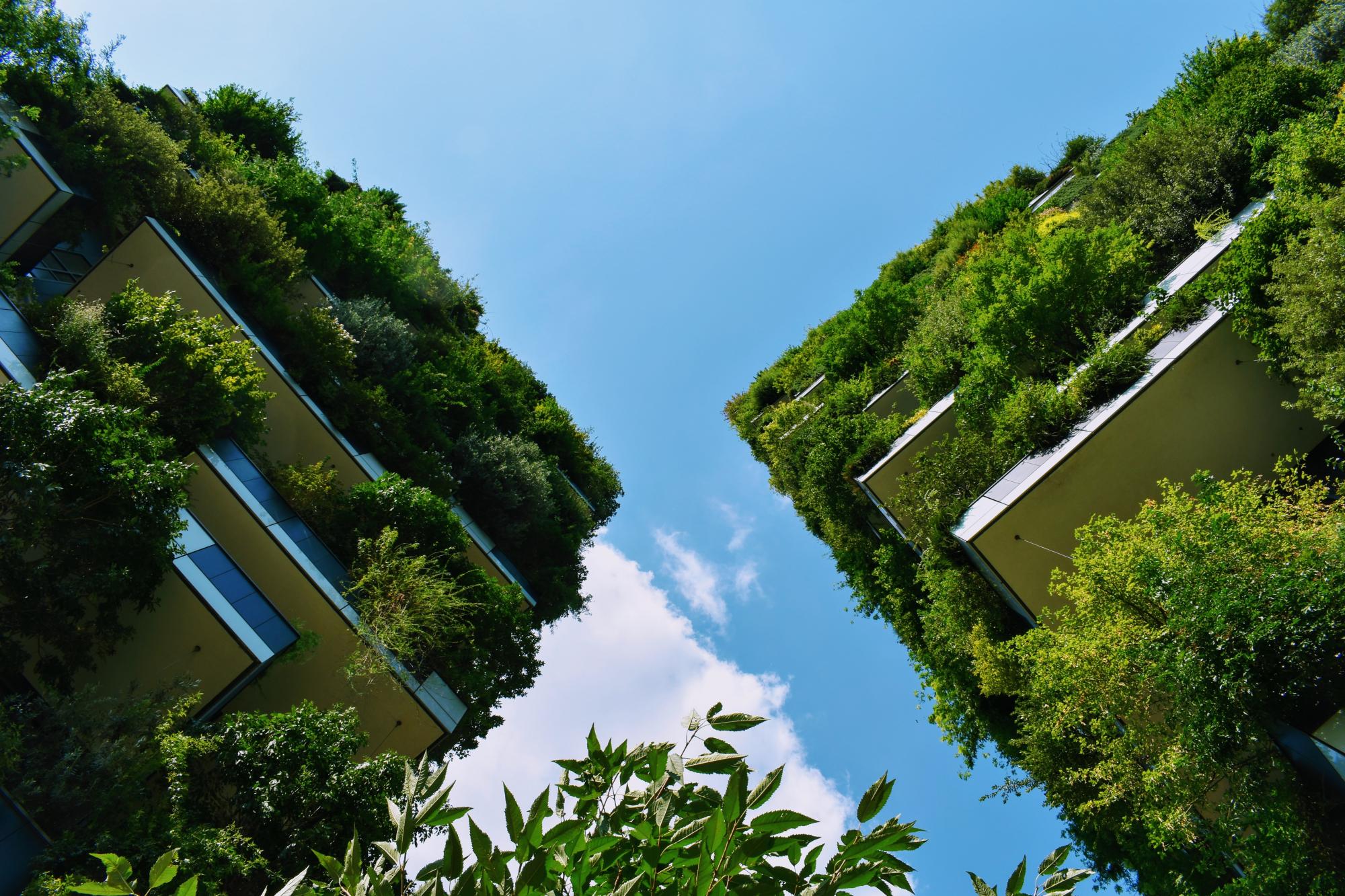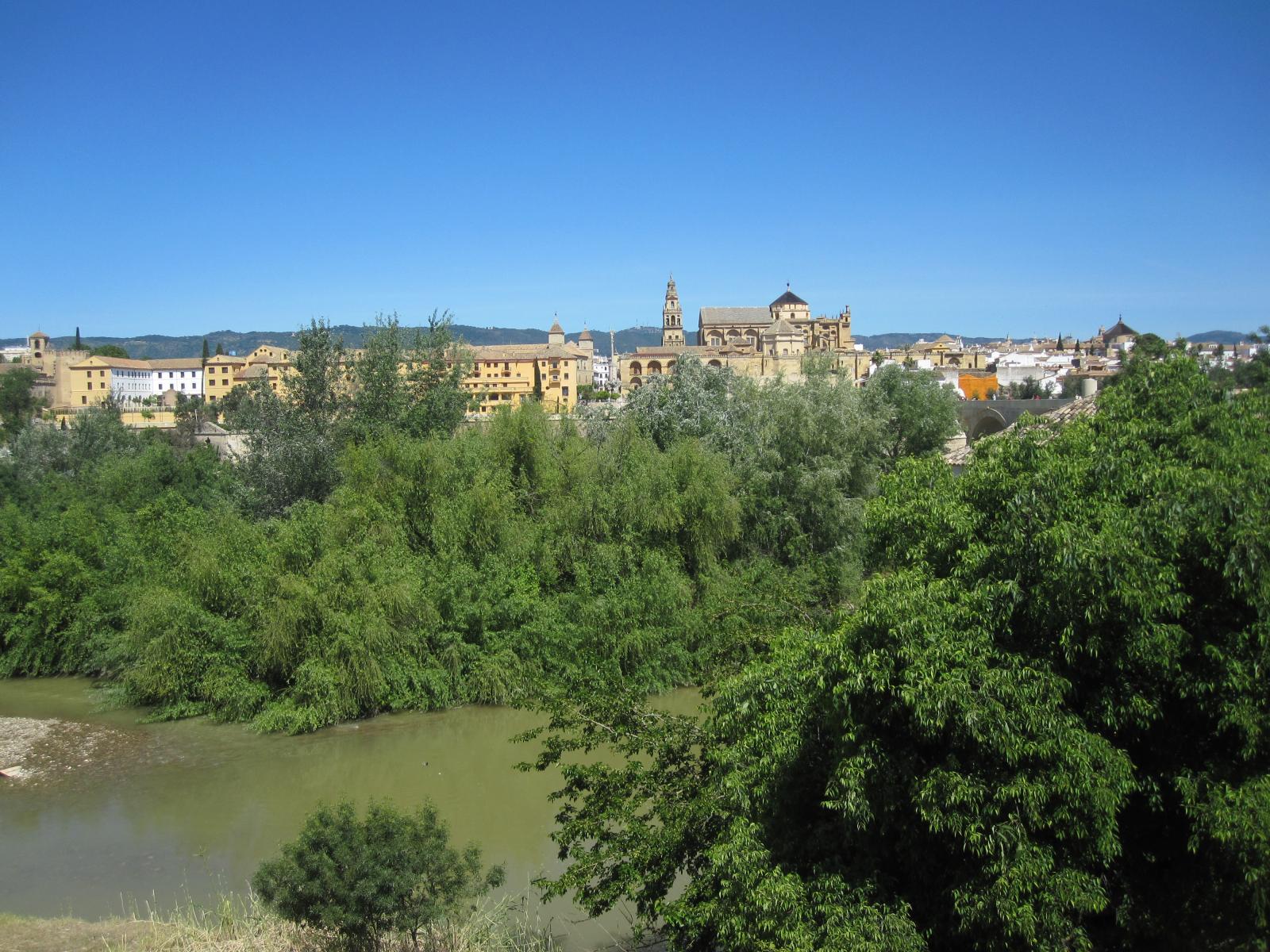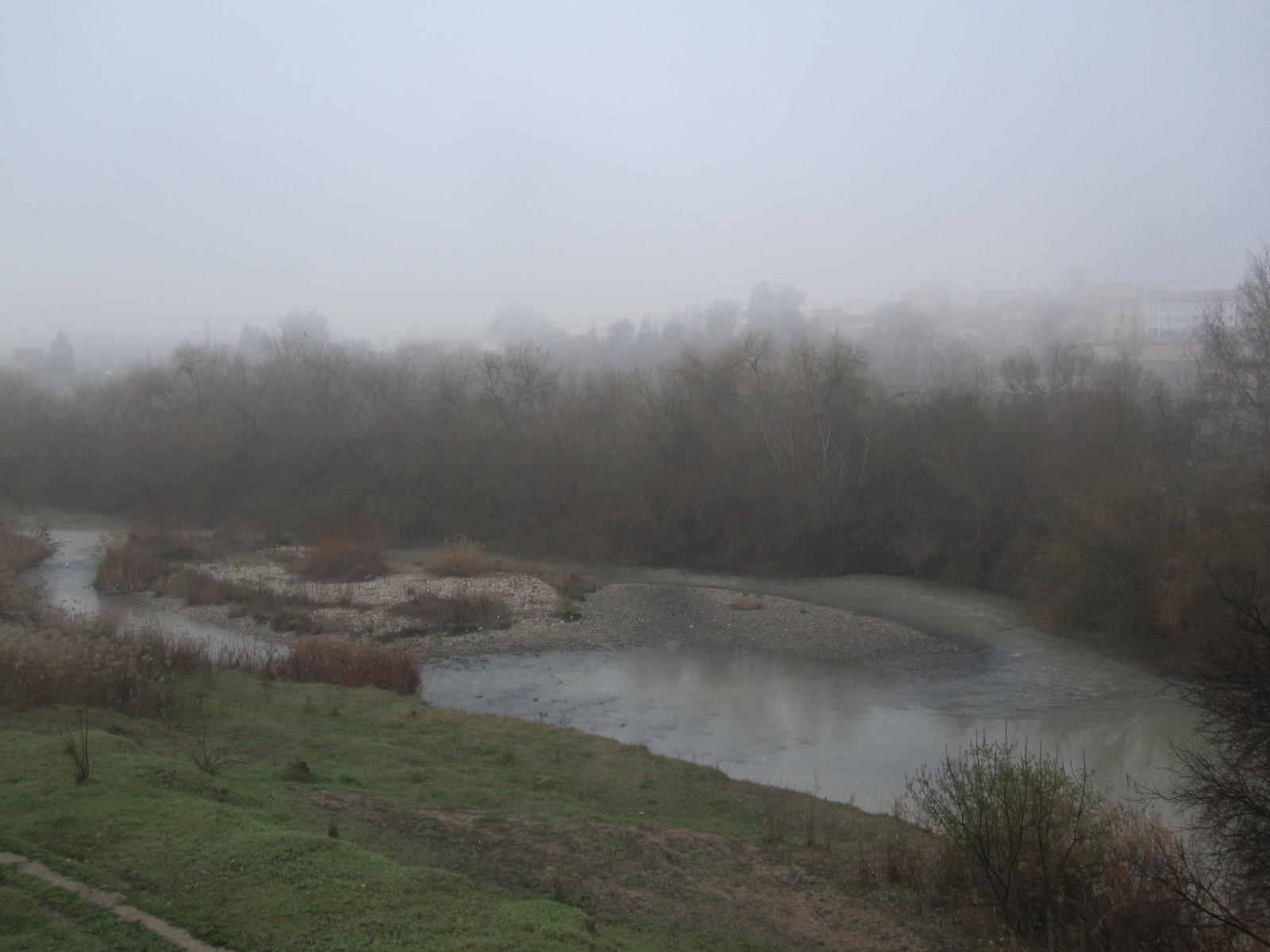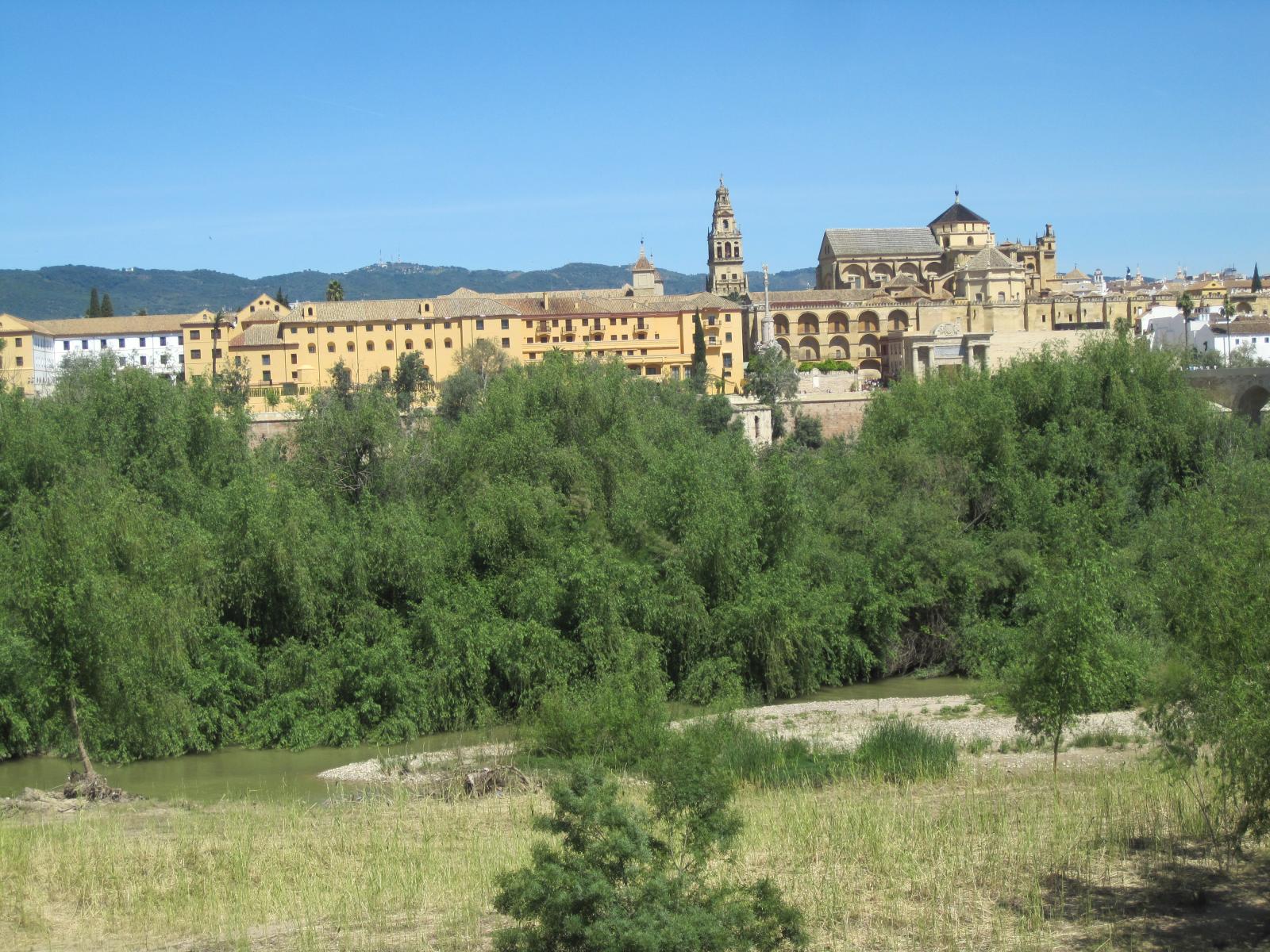Last updated: June 2024
The Sotos de la Albolafia Natural Reserve is situated on a section along the Guadalquivir River, that runs from the Roman Bridge to the San Rafael Bridge (Ref. 3,14). It was declared Natural Monument in 2001 and is part of the Network of Protected Natural Areas of Andalusia (RENPA) due to its wide variety of birds (Ref. 5,15). "The declaration recognized the environmental value of the Sotos de la Albolafia, a singular natural enclave located in the urban center of a large city, in a monumental and historical environment also unique and with an unparalleled concentration in protected species, especially water birds and wetlands." (Ref. 3)
Overview
Nature-based solution
- Blue infrastructure
- Rivers/streams/canals/estuaries
- In-land wetlands, peatlands, swamps, and moors
- Grey infrastructure featuring greens
- Riverbank/Lakeside greens
Key challenges
- Green space, habitats and biodiversity (SDG 15)
- Habitat and biodiversity conservation
- Green space creation and/or management
- Regeneration, land-use and urban development
- Regulation of built environment
- Water management (SDG 6)
- Improvements to water quality
- Cultural heritage and cultural diversity
- Preservation of natural heritage
- Protection of historic and cultural landscape/infrastructure
- Health and well-being (SDG 3)
- Creation of opportunities for recreation
- Social justice, cohesion and equity (SDG 10)
- Social interaction
- Environmental education
- Environmental and climate justice
- Economic development and employment (SDG 8)
- Tourism support
Focus
Maintenance and management of urban nature, Management and improved protection of rivers and other blue areas, Protection of natural ecosystems, Monitoring and maintenance of habitats and/or biodiversity
Project objectives
- Promoting biodiversity (Ref. 5)
- Birds sanctuary and species protection (Ref. 7)
- Natural and historical heritage protection (Ref. 4,7)
- Citizens appreciation of its benefits (Ref.5,15)
- Socio-economic benefits to attract tourism (Regional plan for natural areas conservation for tourism), "Considering the protected natural space as an important asset of local economic development" (Ref. 11)
Implementation activities
- Vegetation management: ‘important vegetation management action has been carried out to keep the old landscapes more open that allowed increasing the border effects between the different vegetation units, which leads to an increase in biodiversity’ (Ref. 3); removing exotic plants (Ref. 4)
- Birding session: data collection with school students : "The Carduelis Ornithological Group of IES Gualdalquivir has held a birding session at the Sotos de la Albolafia Natural Monument, the urban stretch of the Guadalquivir River. Students acquire values such as teamwork, organization of activities, and the development of group goals for social and ecological purposes" (Ref. 1)
- Cleaning day: "The platform "Por un Rio Vivo" made a Saturday cleaning of urban waste in the natural monument of the Sotos de la Albolafia"(Ref. 2)
- Educational/ Engagement Activities: ‘interpretive exhibition has been provided on the Sotos de la Albolafia in the San Antonio mill that allows the visitor to know the protected values and that this space encloses’ (Ref. 3); panels with environmental and historical information about the environment included in facility (Ref. 4); forestry activities aimed at promoting biodiversity (Ref. 5)
- Wayfinding/ Accessibility: The Ministry of the Environment and Regional Planning renewed signage of natural monument in order to improve information for citizens and visitors (Ref. 5)
Biodiversity conservation or restoration-focused activities
Biodiversity conservation:
- Protect and enhance urban habitats
- Preserve and strengthen existing habitats and ecosystems
- Reduce negative impacts and avoid the alteration/damage of ecosystem
- Protect species
- Undertake specific measures to protect species
- Undertake specific measures to protect valued species
- Control and clean invasive alien species
- Means for conservation governance
- Manage biological resources for conservation and sustainable use
- Raise public awareness
- Public engagement
- Create and use scientific knowledge for conservation
- Capacity building
Main beneficiaries
- Local government/Municipality
- Public sector institution (e.g. school or hospital)
- Non-government organisation/Civil Society
- Citizens or community groups
- Other
Governance
Management set-up
- Government-led
Type of initiating organisation
- Regional government
- Local government/municipality
Participatory approaches/ community involvement
- Dissemination of information and education
- Joint implementation (e.g. tree planting)
Details on the roles of the organisations involved in the project
Regional Government:
"Conservation work that the Government of Andalusia has undertaken in the natural monument of the Sotos de la Albolafia since 2012" (Ref. 4)
"The Board (Regional Government) is aware of the importance of promoting the recreational use of natural spaces, which is why "making an important effort to have an extensive network of public use equipment"(Ref. 4)
"The Provincial Environment Delegation plans to develop next year a project to improve and adapt the Sotos de la Albolafia, one of the two natural monuments recognized by the Board in Cordoba." (Ref. 10)
Municipal Government:
City of Cordoba (and various municipal departments, including the Ministry of the Environment and Regional Planning) responsible for some management of the natural monument (Ref. 2,3,4,5)
National Government: Ministry of Environment involved with management of Guadalquivir River (of which the NBS is a part of) (Ref. 10)
EU: Protection of Sotos de la Albolafia through CETS (specifically Spain-Portugal Network of CETS). The European Charter for Sustainable Tourism in Protected Natural Areas (CETS) is an initiative of the EUROPARC Federation that aims to promote the development of sustainable tourism in protected natural areas in Europe (Ref. 11)
NGOs/ Civil Society: Por un Río Vivo platform cleaned up urban waste at the Sotos de la Albolafia (Ref. 2)
Public Sector: The Carduelis Ornithological Group of the IES (Institute of Secondary Education) Gualdalquivir has carried out a bird watching session (Ref. 1)
Project implemented in response to ...
... an EU policy or strategy?
Yes
(European Charter for Sustainable Tourism in Protected Natural Areas (CETS) (Ref. 11))
... a national policy or strategy?
Yes
(National Hydrological Plan (Ref. 10)
Andalusian Plan of Wetlands (Ref. 12)
"The Environment Plan of Andalusia Horizonte 2017" (Plan de medio-ambiente de Andalucía, Ref. 13)
Infoca plan (instrument for defense against fires in forest lands) (Ref. 9, 16))
... a local policy or strategy?
Unknown
("The Environment Plan of Andalusia Horizonte 2017" (Plan de medio-ambiente de Andalucía, Ref. 13)
)
Financing
Total cost
More than €4,000,000
Source(s) of funding
- Public local authority budget
- Public regional budget
Type of funding
- Earmarked public budget
- Direct funding (grants, subsidies, or self-financed projects by private entities)
Non-financial contribution
Type of non-financial contribution
- Provision of labour
Who provided the non-financial contribution?
- Citizens (e.g. volunteering)
Impacts and Monitoring
Environmental impacts
- Environmental quality
- Improved waste management
- Water management and blue areas
- Improved water quality
- Enhanced protection and restoration of freshwater ecosystems
- Green space and habitat
- Increase in protected green space areas
- Increased conservation or restoration of ecosystems
- Increased conversion of degraded land or soil
- Reduced biodiversity loss
- Increased number of species present
- Improved prevention or control of invasive alien species
Economic impacts
- Unknown
Socio-cultural impacts
- Social justice and cohesion
- Improved access to urban green space
- Increased opportunities for social interaction
- Increased involvement of locals in the management of green spaces
- Health and wellbeing
- Gain in activities for recreation and exercise
- Cultural heritage and sense of place
- Protection of natural heritage
- Protection of historic and cultural landscape / infrastructure
- Increased awareness of flora and fauna as culturally and historically meaningful
- Education
- Increased awareness of NBS and their benefits
Type of reported impacts
Achieved impacts
Presence of formal monitoring system
Unknown
Presence of indicators used in reporting
No evidence in public records
Presence of monitoring/ evaluation reports
No evidence in public records
Availability of a web-based monitoring tool
No evidence in public records
References
1. Anon. (2016). "El IES Gualdalquivir lleva a cabo una sesión de avistamiento de aves". Source link. Available at: Source link [Accessed: 14 September 2020].
2. Anon. (2016). "Novedades Libros Entradas Ver todos La plataforma por un rio vivo hace una limpieza reivindicativa". Source link. Available at: Source link [Accessed: 14 September 2020].
3. Aumente, Carmen (2016). "Monumentos naturales". Source link. Available at: Source link [Accessed: 14 September 2020].
4. Anon. (2016). "La Junta invierte 300.000 euros en los Sotos desde el año 2012". Source link. Available at: Source link [Accessed: 14 September 2020].
5. Europa Press (2014). "Medio Ambiente renueva la señalización de los Sotos de la Albolafia". Source link. Available at: Source link [Accessed: 14 September 2020].
6. Anon. (2016). La Junta invierte 300.000 euros en los Sotos desde el año. Available at: Source link [Accessed: 14 September 2020].
7. Aumente, Carmen (2016). Natural monuments. Source link.
Available at: Source link [Accessed: 14 September 2020].
8. Junta de Andulacia. (n.d). Objective and contents of the Sustainable Development Plans. [Not available in 2020].
9. Exposito, Francisco. (2003). La Junta actuará en los Sotos de la Albolafia. Source link. Available at: Source link [Accessed: 14 September 2020].
10. Garcia H., Julie (2003). La remodelación del río va llegando a su fin. Source link.
Available at: Source link [Accessed: 14 September 2020].
11. Junta de Andalucia (n.d). European Charter for Sustainable Tourism. Available at: Source link [Accessed: 14 September 2020].
12. Junta de Andalucia (2002). Andalucia Wetlands Plan. Available at: Source link [Accessed: 14 September 2020].
13. Junta de Andalucia (n.d). "Plan de Medio Ambiente de Andalucía - Horizon 2017". Source link. Available at: Source link [Accessed: 14 September 2020].
14. Junta de Andalucia. (n.d.). Natural Monument Sotos de la Albolafia. Source link. Available at: Source link [Accessed: 14 September 2020].
15. Junta de Andalucia. (n.d.). Natural Monuments. Source link. Available at: Source link [Accessed: 15 September 2020].
Ref. 16. Junta de Andalucia. (n.d.). INFOCA Plan Framework. Source link. Available at: Source link [Accessed: 15 September 2020].
2. Anon. (2016). "Novedades Libros Entradas Ver todos La plataforma por un rio vivo hace una limpieza reivindicativa". Source link. Available at: Source link [Accessed: 14 September 2020].
3. Aumente, Carmen (2016). "Monumentos naturales". Source link. Available at: Source link [Accessed: 14 September 2020].
4. Anon. (2016). "La Junta invierte 300.000 euros en los Sotos desde el año 2012". Source link. Available at: Source link [Accessed: 14 September 2020].
5. Europa Press (2014). "Medio Ambiente renueva la señalización de los Sotos de la Albolafia". Source link. Available at: Source link [Accessed: 14 September 2020].
6. Anon. (2016). La Junta invierte 300.000 euros en los Sotos desde el año. Available at: Source link [Accessed: 14 September 2020].
7. Aumente, Carmen (2016). Natural monuments. Source link.
Available at: Source link [Accessed: 14 September 2020].
8. Junta de Andulacia. (n.d). Objective and contents of the Sustainable Development Plans. [Not available in 2020].
9. Exposito, Francisco. (2003). La Junta actuará en los Sotos de la Albolafia. Source link. Available at: Source link [Accessed: 14 September 2020].
10. Garcia H., Julie (2003). La remodelación del río va llegando a su fin. Source link.
Available at: Source link [Accessed: 14 September 2020].
11. Junta de Andalucia (n.d). European Charter for Sustainable Tourism. Available at: Source link [Accessed: 14 September 2020].
12. Junta de Andalucia (2002). Andalucia Wetlands Plan. Available at: Source link [Accessed: 14 September 2020].
13. Junta de Andalucia (n.d). "Plan de Medio Ambiente de Andalucía - Horizon 2017". Source link. Available at: Source link [Accessed: 14 September 2020].
14. Junta de Andalucia. (n.d.). Natural Monument Sotos de la Albolafia. Source link. Available at: Source link [Accessed: 14 September 2020].
15. Junta de Andalucia. (n.d.). Natural Monuments. Source link. Available at: Source link [Accessed: 15 September 2020].
Ref. 16. Junta de Andalucia. (n.d.). INFOCA Plan Framework. Source link. Available at: Source link [Accessed: 15 September 2020].



